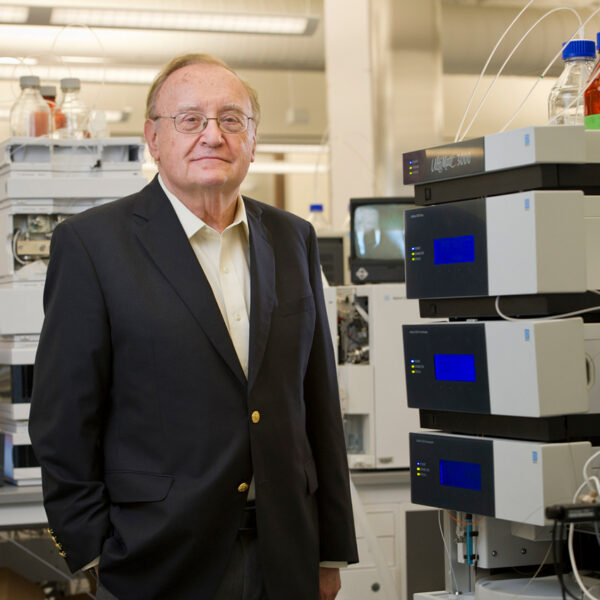About Barry L. Karger
Barry L. Karger, PhD, is the Director Emeritus of the Barnett Institute for Chemical and Biological Analysis, and James L. Waters Emeritus Chair and Distinguished Professor Emeritus at Northeastern University. Over the course of his career, Dr. Karger has made major advances in the understanding of fundamentals of chromatography and capillary electrophoresis techniques and to their application, particularly in the fields of protein and DNA analysis.
Dr. Karger founded the Barnett Institute of Chemical and Biological Analysis in 1973, which has been a major contributor in developing analytical methods for the biological sciences and the instrumentation and biotechnology industries. The Barnett Institute has produced over 500 PhDs, postdocs, and staff, many of whom have gone on to have distinguished careers in academia and in the industry.
Dr. Karger began his research career in gas chromatography. He was at the forefront of high-performance liquid chromatography and was among the first to develop reversed-phase liquid chromatography (RPLC). He introduced a means of classifying mobile phases in RPLC, leading to a better understanding of selectivity, and he was the first to show direct enantiomeric separations using liquid chromatography, by using chiral chelate additives. In 1973, Karger co-authored the textbook, An Introduction to Separation Science, which was used to train over two generations of analytical chemists in chromatographic fundamentals.
Dr. Karger played a significant role in the Human Genome Project using capillary electrophoresis. He was the first to show that polymer separation media could be blown out of the capillary column and reloaded with fresh polymer with no change in separation performance of DNA fragments, allowing automated DNA sequencing. His linear polyacrylamide polymer matrix was used to sequence 40% of the first human genome sequence.
Dr. Karger is also known for his research on the analysis of peptides and proteins, especially the native-denatured behavior of proteins in RPLC. Focusing on the coupling of mass spectrometry with liquid chromatography and capillary electrophoresis, his work facilitated the analysis of low-volume clinical samples and led to the identification of important cancer and blood biomarkers. His research also expanded to include detailed characterization of protein biopharmaceuticals — applying powerful analytical techniques that are in routinely used today in the biopharmaceutical field.
Dr. Karger won the Steven dal Nogare Memorial Award for Chromatography (1975), the American Chemical Society (ACS) Award in Chromatography (1982), the M.S. Tswett Medal in Chromatography (1986), the ACS Award in Analytical Chemistry (1990), the A.J.P. Martin Medal (1991), the EAS Symposium Award for Outstanding Achievements in the Field of Separations Science (1997), the ACS Award in Separations Science and Technology (1998), and the Halász Medal of the Hungarian Chemical Society for Chromatography and Separation Science (2002). He has also received the CaSSS Award (2003), the Michael Widmer Award (2004, Switzerland), the Torbern Bergman Medal (2008, Sweden), the Csaba Horváth Medal (2008), the Golay Medal, (2009), the Csaba Horváth Lectureship (2010, Hungary), the J. Heyrovsky Honorary Medal (2010, Czech Republic), the Arnold O. Beckman Medal (2014), and the Lifetime Achievement in Chromatography Award by LCGC (2022).
